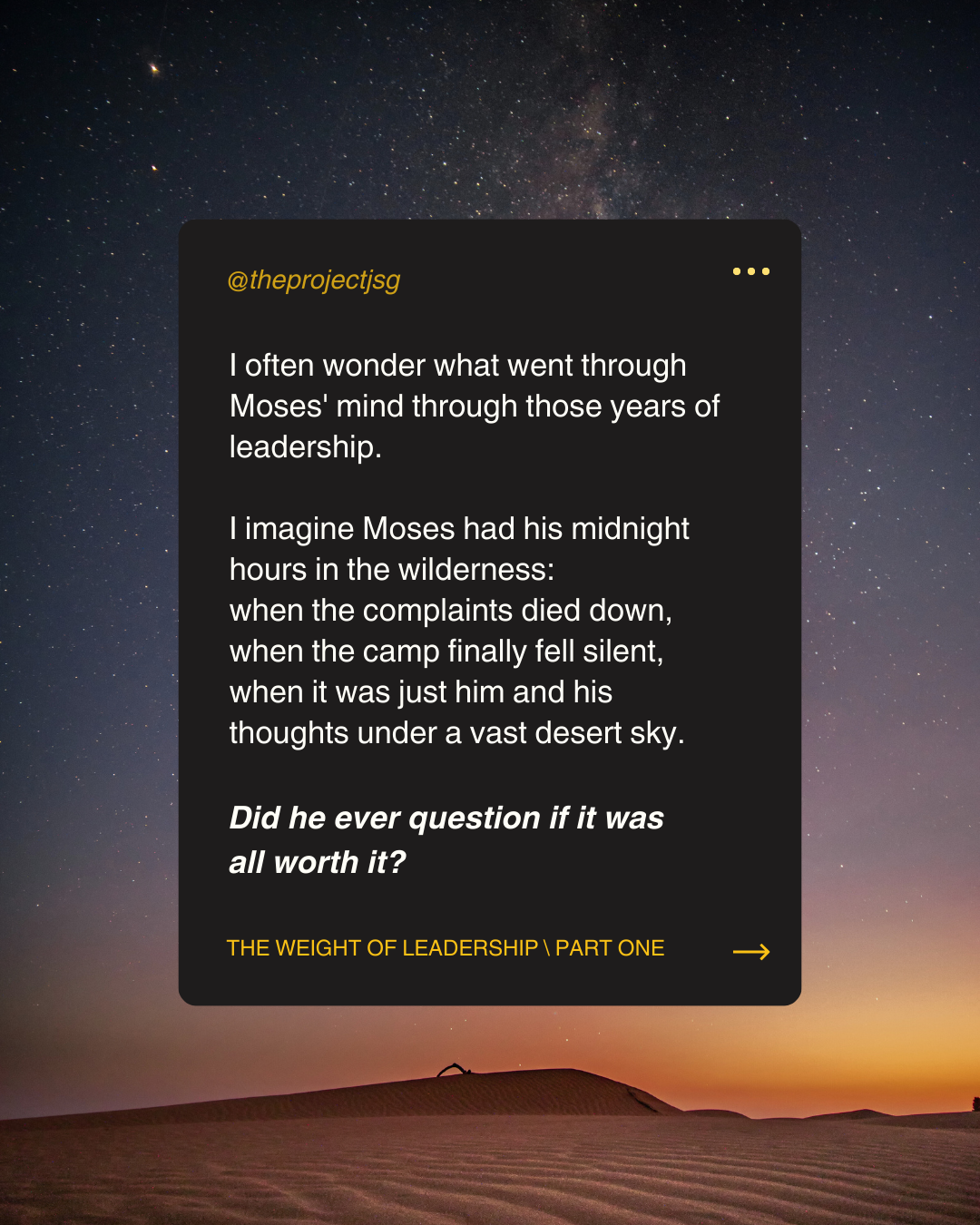The Breaking Point: When Moses Struck the Rock
The Breaking Point: When Moses Struck the Rock
Even the strongest leaders have their breaking points. For Moses, it came at Meribah. One moment of raw frustration. One act of disobedience. And suddenly, everything changed.
The complaints are familiar – no water, again. But this time, something in Moses snaps. Perhaps it was the weight of forty years carrying Israel's constant grumbling. Perhaps it was the fresh wound of losing his sister Miriam. Perhaps it was the bone-deep exhaustion of standing alone in leadership, day after day, year after year. Whatever the final straw, Moses – the man known for his unparalleled meekness – erupts.
The words burst from his lips, charged with decades of suppressed frustration. God had instructed him simply to speak to the rock. Instead, Moses lifts his staff and strikes it. Not once, but twice. The water comes – God's faithfulness despite human failure – but something precious is broken in that moment.
We often rush to judge Moses here, but pause. Leaders are human too. Feel the weight of his position. Every leader knows those moments when the criticism seems endless, when the burden feels unbearable, when your very soul cries out for just one day of peace. Moses had carried Israel's complaints, mediated their conflicts, and interceded for their rebellions for forty years. Moses wasn't just having a bad day – he was experiencing the culmination of years of carrying a nation's struggles on his shoulders. He had poured out his life for a people who seemed to specialise in ingratitude.
Some might question: Wasn't God's punishment too severe? One moment of weakness, and Moses loses the right to enter the Promised Land? It seems harsh, unfair even. But this is precisely where the deeper lesson lies: leadership, especially spiritual leadership, carries with it a holy weightiness.
When God appoints a leader, He entrusts them with more than just a position – He entrusts them with showing others who He really is. The holy responsibility of representing His character to His people. At Meribah, Moses didn't just disobey a command about how to get water. In his anger, he painted the wrong picture of God to a watching nation. Where God intended to show His gentle provision, Moses portrayed Him as exasperated and angry. Where God meant to show His patience and grace, Moses showed frustration and contempt.
Dear leaders, our actions shape how others see God, in every season and situation. When we lead a ministry, guide a small group, or pastor a church, we're not just managing programs or making decisions. We're showing people who God is – in our victories and failures, in our strength and in our weakness, in our joy and in our pain. Whether we're having our best day or our worst, whether we're feeling strong or reaching our breaking point – people are watching, and they're forming their view of God through how we live.
Yes, leadership is hard. Yes, there will be days when we feel like we can't go on, when the weight feels too heavy to bear.
But if God has called you to lead His people, He has also equipped you for this weighty task. Your calling isn't just about what you do – it's about who you represent. Bring this burden to Him. When the criticism cuts deep, when the loneliness of leadership weighs heavy, when you feel your own Meribah moment building – that's your cue to step away and enter your prayer closet. Pour it all out before the One who called you. He who entrusted you with His people knows exactly what you're going through, and He hasn't left you to carry this weight alone.
Even the strongest leaders will face their Meribah moments. Yet the same God who called Moses calls you. That's Who you need to fix your eyes on.






Leave a comment
This site is protected by hCaptcha and the hCaptcha Privacy Policy and Terms of Service apply.